There are many reasons to use organic and non-organic mulch. Keeping weeds from taking over our landscape beds is a popular reason many of us use the stuff. Covering a weep irrigation system or soaker hose helping to control moisture levels in our vegetable gardens and container planting is one of many widely used organic gardening methods.
That brings us to the question many newbie and master gardeners like you and me find ourselves asking. Which mulch is the best for a particular application? After all what makes one of those colorful hardwood mulch, dyed in a popular accent colors, better or worse than a non-organic mulch made of recycled rubber product, or black plastic sheeting.

Organic or Non-organic, which is the best garden and landscape Mulch?
by teddletonmr
Using a layer of landscape mulch to control weeds, and retain moisture in our raised garden beds, container and vegetable gardens makes organic gardening easier…
What is Organic Mulch?
As many of us are already aware, organic mulch is simply natural materials such as, hardwood tree bark, wheat straw, tree leaves, pine needles, grass clippings. Sawdust, wood chips, and yes-even Pete moss.
On the other hand, there are those of us that prefer to think green and recycle everyday paper products. By recycling old newspapers and cardboard boxes as garden mulch, keeps them out of the landfill and works great as organic mulch around our tomato and pepper plants in the garden.
For the best results when using hardwood mulch, use a four-inch deep layer after pulling all the unwanted weeds from your garden and landscape beds. Soaking newspaper and cardboard with water before lying around the base of our plants as mulch makes it easier to keep the recycled newspaper and cardboard garden mulch both, in contact with the soil, keeping it from blowing away.
Biodegradable Paper Mulch
 | 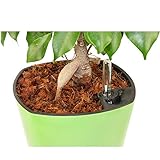 |
| EZ-Straw Seeding Mulch with Tack - Bi... | Fiber Mulch (5 Quarts) Organic Pottin... Only $9.99 |
What are the Benefits of using organic mulch?
Using organic mulch provides several benefits for our garden.
1. Organic mulch decomposes providing nutrients the microorganisms and earthworms that live in healthy garden soil need.
2. A four-inch layer of good hardwood mulch also helps to keep the soil cool in hot weather there by reducing evaporation of the moisture in the soil.
3. Organic mulch is relatively inexpensive and breaks down into the soil over time.
Heavy duty Electric Mulcher Shredder
 |  |
| Flowtron LE-900 The Ultimate Mulcher ... Only $187.49 | WORX WG430 13 amp Electric Leaf Mulch... |
What is the down side to using organic mulch?
1. Harmful pest such as slugs and snails thrive in the environment, created by a good layer of organic mulch when the weather keeps the mulch damp for extended periods.
2. When organic mulch touches some plant stems, the mulch sometimes causes the plant stem to rot. To prevent this from happening to your plants keep the organic mulch at least two inches away from the stems of your vegetable plants.
3. Organic mulch decomposes over time, creating the need for adding a new layer each year to keep it looking and performing its best.
What are the benefits of using Non-organic Mulch?
1. Non-organic mulch, black plastic sheets are the most commonly used non-organic mulch product, it is inexpensive, widely available and easy to install.
2. Because the plastic sheets are non-pours and black in color, they deprive weeds of sunlight and oxygen.
3. Black plastic sheet absorbs and stores the sunlight’s energy as heat, where it keeps the ground and the roots of the plants warm after the sun goes down. This is a good thing for tender flowering plants and vegetables, however not so good for hearty ornamental plants and vegetables. They will overheat become stressed and may even die.
Landscape black plastic sheeting and recycled rubber mulch
 |  |  |
| Warp Brothers 4CH350-B 4 Mil Consumer... Only $9.66 | International Mulch NS08ET Rubber Nug... Only $13.85 | YARDWISE Landscape Rubber Mulch Palle... Only $799.00 |
What is the down side to Non-organic Mulch?
1. The down side of the black plastic non-organic mulch, it keeps air and water from reaching the roots of plants.
2. This requires gardeners to either cut drill or poke several drain holes in the plastic sheeting to allow water and air to penetrate the plastic sheeting.
3. Non-organic mulch, plastic sheets or recycled rubber landscape mulch products do not break down and decompose back into the soil providing nutritional value to plants.
Define your garden and landscape beds with easy to install border edging
 | 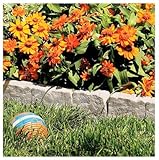 |  |
| Master Mark Plastics 93340 Terrace Bo... | Suncast Interlocking Border Edging - ... | Master Mark Plastics 95340 Terrace Bo... Only $29.36 |
Things to remember about organic and non-organic mulch
Using organic mulch and non-organic mulch products in our landscape, flower and vegetable garden beds is a cost effective way to control weeds, moisture and soil temperature. Organic mulch has the added benefits of breaking down thereby, decompose into our gardens soil Where it not only helps to improve the soil structure, it also helps to maintain nutrient levels in the soil, through earthworm castings, and other microorganisms that live in healthy soils doing what they do.
Colored recycled rubber garden mulch being a non-organic product, look good for many months and in many climates, even many years. However, do not decompose back into the soil providing any nutrients at all. Making it necessary gardeners must remove and replace the recycled rubber garden mulch, and plastic sheeting when it loses its appeal.
Enjoy your garden, Mike
Useful Organic gardening Tips
Helpful product reviews
You might also like
Weeds Wild, Wicked and EdibleWeeds are simply plants that we do not want in our farms and gardens.
Midsummer, and a Damson in DistressAround midsummer the first planting is over and harvest is some distance away...
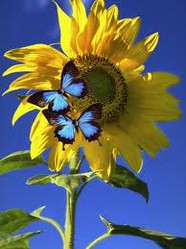








 Apple Watch the Best Talking Watch Bargainon 01/16/2023
Apple Watch the Best Talking Watch Bargainon 01/16/2023
 In-depth review of a Bushcraft Backpacking Survival hatcheton 12/05/2014
In-depth review of a Bushcraft Backpacking Survival hatcheton 12/05/2014
 Winterizing windows – Easy and inexpensive DIY projecton 11/17/2014
Winterizing windows – Easy and inexpensive DIY projecton 11/17/2014
 Growing cucumbers on a trellis is fun and easyon 08/05/2014
Growing cucumbers on a trellis is fun and easyon 08/05/2014
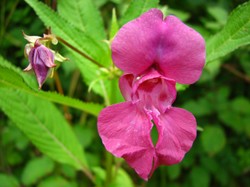
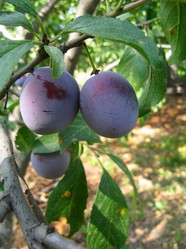
Comments